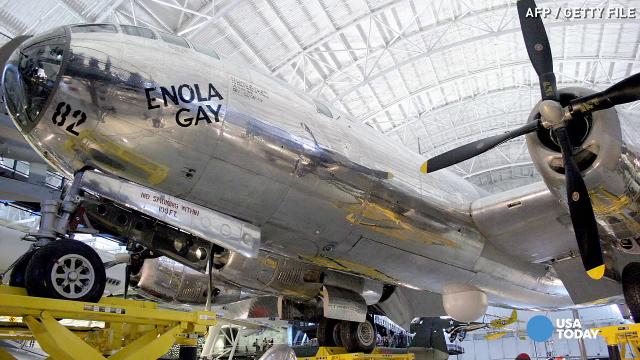Michael R. Howard
In 1986 a special assignment took me to the remote, desolate and windswept island of Tinian in the Northern Mariana Islands.
What remained of long, twin runways built for B-29s to attack Japan during World War II, were overgrown and difficult to find. Only slivers of concrete the width of our jeep remained visible. Coconut crabs the size of footballs thumped under our wheels.
The island is where the atomic bomb “Little Boy” was stored and loaded on the B-29 Enola Gay for its historic mission to Hiroshima, Japan. There’s a small marker to identify the pit where the bomb was kept and one could easily pass it by without recognizing its significance.

A decade later, as the commanding officer of a special team in Coronado, California, a young sailor asked me if his uncle could visit and talk to our troops. Not eager to allow just any “uncle” to occupy our troops’ valuable time, I politely asked his uncle’s name.
“Oh,” he said, “Uncle Tibbets.”
The name seemed somewhat familiar, and with a half-hearted attempt at humor I asked, “You mean Gen. Paul Tibbets, the pilot of the B-29 Enola Gay who dropped the atomic bomb on Hiroshima?”
“Yes sir, that’s him,” responded the young sailor rather casually.
I outwardly embraced the idea and told him to bring his uncle in at his earliest convenience. The young sailor thanked me and we parted with me still a little skeptical but sincerely hoping this was sincere.
Indeed, it was and Gen. Tibbets did visit my command and addressed our troops. He declined press coverage and all offers to expand the audience to the many SEAL teams and larger Navy presence in the San Diego area. He insisted the audience be our team only.

The general’s arrival was inauspicious and informal. He drove up, parked, got out and shook hands. As simple as that. Not many general officers, even those retired and with no historic weight to their name, would allow such lack of formality. But he insisted on it.
My immediate impression was a decisive, fearless man of unwavering aplomb, not given to small talk, fools or humor. His talk was inspirational, captivating and completely not politically correct, to the extreme delight of my troops and myself.
He had strong feelings about aspects of our then current military and society, which also delighted us all. Sadly, these views spoken openly today would certainly be cause for immediate lynching. But he was not afraid to speak his mind, and the troops loved him for this.
He was unapologetic of his role in dropping the atomic bomb and harbored no guilt. One could argue, and many still do, the strategic and moral significance of this one act. But I am totally convinced, having studied the issue, that as horribly destructive as it was, it did shorten the war and saved far more American and allied (and even Japanese) lives than if the war continued.

After his talk, the troops lined up to shake his hand. He shook each one. I was blessed and honored to spend a day with a true American hero; a man asked to do a terrible thing in war; a man who accepted what his country asked of him without hesitation knowing it was an extremely difficult, sensitive mission with lasting consequences.
Thank God for men like this, and men and women of his generation, whose vocabularies did not include “safe space.”
Soon after, the general sent me a poster photo signed by himself, his navigator and his bombardier of the Enola Gay on the Tinian runway precisely where I had stood a decade earlier.
Like the man himself, it’s a treasure.
Michael R. Howard, Vero Beach, is a retired Navy SEAL captain and was executive director of the National Navy SEAL Museum 2004-12.

